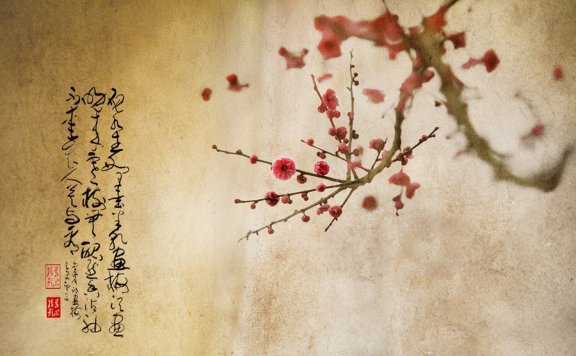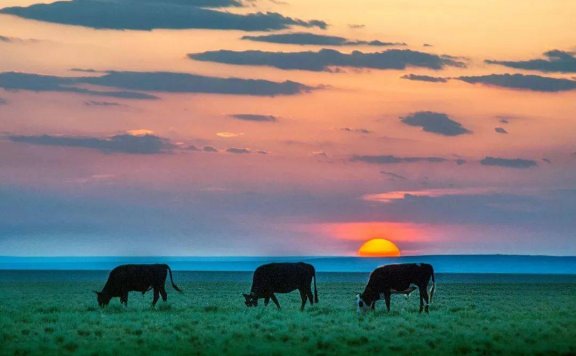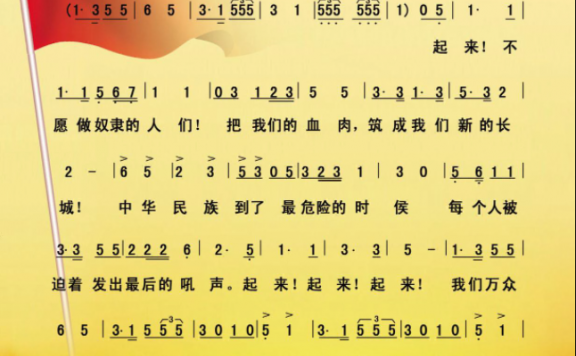The plum blossom melody play three times梅花三弄
Overview Chinese Name: 梅花三弄English Name: The plum blossom melody play three times, Mei Hua San Nong The plum blossom melody play three times,梅花三弄Mei Hua San Nong,It is also known as "plum blossom introduction", "plum blossom melody" and "jade concubine introduction". It is an ancient Qin music. Its history can be traced back to the Eastern Jin Dynasty. At first, it may be a flute music or Xiao music, but now there are only ancient Qin scores. The earliest existing ancient Qin score of "plum blossom three lane" can be found in "magic secret score". It uses positive tuning. Through the white fragrance and cold resistance of plum blossoms, the music expresses its feelings and praises people with noble integrity. The whole song consists of 10 paragraphs. Because the theme is played three times on the overtones of different emblem positions of the piano (played in the upper, middle and lower parts), it is called "Sannong". Story of The plum blossom melody play three times The music score of the Mei Hua San Nong, which has been handed down to today, can be summarized into two types: the old and the new. The former is natural and unrestrained, which was passed…Mo Li Hua茉莉花
Overview Chinese Name: 茉莉花English Name: Mo Li Hua, Jasmine FlowerComposer: He Fang何仿 Chinese Folk Tune Mo li Hua Mo Li Hua was adapted from the Chinese folk song Flower Tune by He Fang and was first released as a single in 1957. Composition Story of Mo Li Hua In the winter of 1942, He Fang visited a local pianist and singer. The pop singer performed the folk song "Flower Tune" for him. He Fang was immediately fascinated by the melody of "Flower Tune", so he spent most of the day writing down the song with simplified music and singing it accurately according to the artist's method. Because "Flower Tune" is a creation from Chinese folk, it seems a little rough on the whole. In order to polish the song, He Fang considered again and again, adapted the Flower Tune, and rewritten the three kinds of flowers described in the lyrics into jasmine. In 1957, He Fang planned to perform the song publicly for the first time by the front-line song and dance troupe at the all army literature and art festival in Beijing. As the song was echoed in the performance, a recorded version was released. In the following two…The Rising Sun Never Sets on The Grassland草原上升起不落的太阳
Overview Chinese Name: 草原上升起不落的太阳English Name: The Rising Sun Never Sets on The GrasslandComposer: MeiLi QiGe美丽其格 The Rising Sun Never Sets on The Grassland is a song sung by Hu Songhua and composed by Meili Qige. The song was created in 1952. Based on the folk tunes of Inner Mongolia, the melody is broad and stretch, rich in rich national style and local color. It has been sung for more than half a century and has become the most representative song to praise and publicize Inner Mongolia. It has also been selected as the "Chinese music classic of the 20th century". Composition Story of The Rising Sun Never Sets on The Grassland Talking about the creative process of The Rising Sun Never Sets on The Grassland, Meili Qige said that he was only 24 years old at that time, so he didn't think too much about his creation. Meili Qige(1928-2014) In 1952, the Central Conservatory of Music asked each student to write a song as a one-year graduation assignment. Because Meili Qige often talked to his classmates about some customs of his hometown grassland, the students suggested that he write what he said into a song. "I took Chao'er(A Mongolian musical instrument)…March of the Volunteers义勇军进行曲
Overview Chinese Name:《义勇军进行曲》 English Name: March of the VolunteersLyrics: Tian Han 田汉Music: Nie Er 聂耳 "March of the Volunteers" is a song composed by Tian Han and Nie Er. It is the theme song of the film "Children of Troubled Times". It is known as the clarion call for the liberation of the Chinese nation. Since its birth in 1935 at the juncture of the national crisis, it has played a great role in stimulating the patriotic spirit of the Chinese people and later became the National Anthem of the People's Republic of China. March of the volunteers Listen the “March of the Volunteers” Online Background of March of the Volunteers "March of the volunteers" was originally the theme song of the film " Children of Troubled Times of the wind and cloud" released in 1935. This film was a successful film made by the Communist Party of China as an underground party after many difficulties. Its original intention was to influence the people's thoughts through the film and call on everyone to unite and resist Japan and save the country at the time of the survival of the nation. However, the ruling party at that time was the Kuomintang, and…
china songs
❯
Profile
Cart
Coupons
Message
Message
Search
Customer service
Scan to open current page
Top
Checking in, please wait
Click for today's check-in bonus!
You have earned {{mission.data.mission.credit}} points today!
My Coupons
- ¥CouponsLimitation of useExpired and UnavailableLimitation of use
before
Limitation of usePermanently validCoupon ID:×Available for the following products: Available for the following products categories: Unrestricted use:Available for all products and product types
No coupons available!
Unverify
Daily tasks completed:



